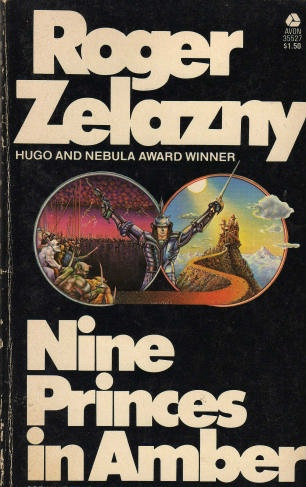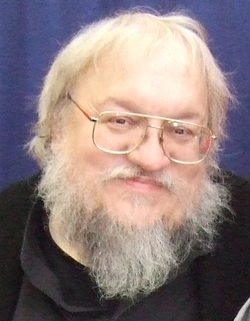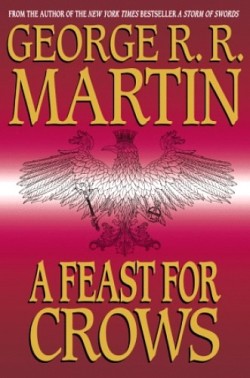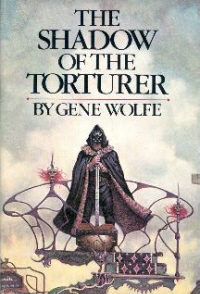Gotta Love Those “Wow!” Moments
 Wednesday, March 19, 2014 at 06:54PM
Wednesday, March 19, 2014 at 06:54PM Don’t you love those moments when you’re reading, when everything in the real world starts to fade away? You’re turning pages at a smooth yet slightly increasing pace to see what’s going to happen next. Your heart starts to race, your muscles tense. And then – “Wow!” You get hit with something that makes you stop. It’s really more like a “Pow!” because you have to step back from the book to contemplate, to admire, to be amazed.
Now, I’m not talking about the awesome grandeur you experience with vast, intricate Tolkien-esque world-building: I’m talking about those timeless, wonder-filled moments – a scene, an act, a decision – that’s like a punch in the gut, like when Dorothy steps out of her black and white house to the Technicolor Land of Oz.
“Wow!”
 It still delivers after all these years.Recently, I was listening to the audio book of Roger Zelazny’s Nine Princes in Amber. This is a book that my friends and I have read multiple times throughout our high school and college days. (I even used to be able to tell page numbers when they described or read a passages to me.) Anyway, it’d been awhile since I’d revisited it. I’d made it to the part where Corwin, the narrator who has amnesia, has escaped from the hospital where he was being drugged and held against his will, and he’d just been reacquainted with his siblings Flora and Random.
It still delivers after all these years.Recently, I was listening to the audio book of Roger Zelazny’s Nine Princes in Amber. This is a book that my friends and I have read multiple times throughout our high school and college days. (I even used to be able to tell page numbers when they described or read a passages to me.) Anyway, it’d been awhile since I’d revisited it. I’d made it to the part where Corwin, the narrator who has amnesia, has escaped from the hospital where he was being drugged and held against his will, and he’d just been reacquainted with his siblings Flora and Random.
Okay, if you’ve not read it, here’s the big concept: Amber is a city, the one true world, and the shadows it casts create a multitude of worlds, including our own. The royalty of Amber can “shift,” or travel through and manipulate those shadows, but Corwin, of course, has no memory of this. Since the story is told from his point of view – and first person at that – the reader has no idea what’s going on either, until Random begins leading Corwin through shadow toward Amber. And this is my “Wow!” moment, when reality begins to change, subtly at first, and then drastically. I remember getting up and walking around the room the first time I read it, and listening to it this time brought the same elation. I just had to stop what I was doing and shake my head and whisper, “wow!” Honestly, I did. “Wow!” It was amazing, utterly amazing. Again.
It happens in movies, too, I know, but it’s these special, unforgettable moments that make a book so rewarding and keeps pulling us back to it again and again.
Anyway, that was mine, what’s yours? What scene made your heart leap? Time stop? Tears well? Share it with us. Provide the title, author and a description of the scene, please, and post a pic of the cover, too, if you can.
 Fantasy Lit,
Fantasy Lit,  Nine Princes in Amber,
Nine Princes in Amber,  Roger Zelazny in
Roger Zelazny in  Books
Books 



